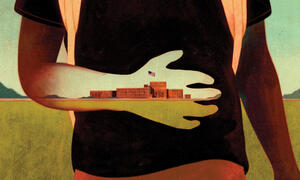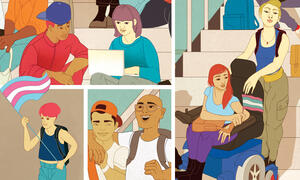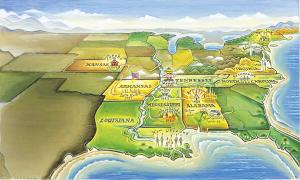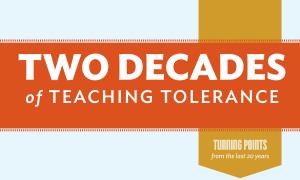article
550 Results
text
Informational
Anything We Love Can Be Saved (Introduction)
In this introduction, Alice Walker touches on ideas of activism, the strength of the individual, enlightenment, fear of being inferior and the conviction needed to embrace one's life.
July 7, 2014
article
Child Hunger Should Concern Us All

Ensuring food security for all children is a national responsibility that should cut across political divides.
article
Inclusive Education Benefits All Children

In confronting attacks on LGBTQ+ students’ rights to representation and safety in public education, we hold firm to creating inclusive and affirming learning spaces.
article
"These Guys Are Fun!"
School and community programs foster friendships across the generations
article
Civil Rights Road Trip

By tracing the footsteps of those who fought for civil rights, you may begin to think about how you can use your own voice to make positive changes.
lesson
The New Deciders
“The New Deciders” examines the influence of voters from four demographic groups—black millennials, Arab Americans, Latino Evangelicals and Asian Americans. Viewers will meet political hopefuls, community leaders, activists and church members from Orange County, California, Cleveland, Ohio, Greensboro, North Carolina and Orlando, Florida, all of whom have the opportunity to move the political needle, locally and nationally.
September 2, 2016
text
Informational
No Promised Land
“When Mormons settled in Missouri in the 1830s, local residents found Mormon beliefs and practices not simply strange, but wrong. … The Mormons, the Missouri governor declared, must be removed—if not by expulsion, then by extermination.”
May 22, 2017
text
Informational
Street Justice
The distrust between the Jewish community and African-American community in the Crown Heights neighborhood of Brooklyn in the 1990s reached an all-time high when a runaway car struck two children.
May 22, 2017
professional development
The Right to Vote (Transcript)
This transcript of NBC’s 2004 story “The Right to Vote” highlights the events leading up to the Selma-to-Montgomery march, with firsthand accounts from Rep. John Lewis.
October 26, 2011
